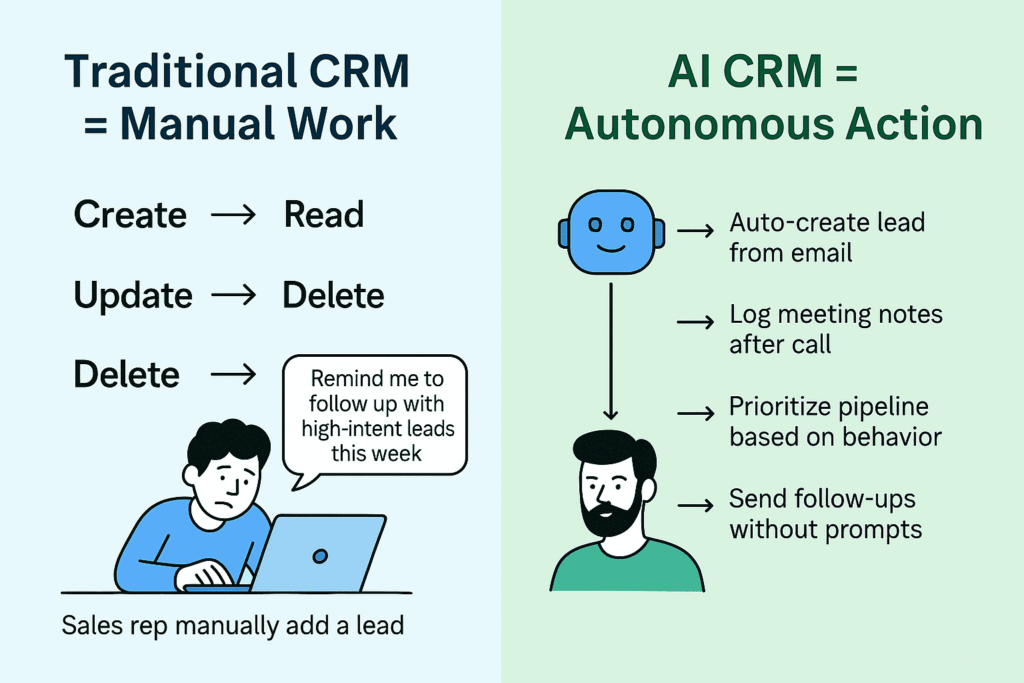Salesforce co-founder Marc Benioff has a long history of chasing trends. From NFT Cloud to Vaccine Cloud, he’s rolled out buzzword-heavy products that failed to make a meaningful impact. Today, he’s all in on artificial intelligence, loudly promoting “Agentforce” — a new AI-powered CRM platform positioned as the company’s next big leap.
But is this truly innovation? Or is it Salesforce hedging against its own decline?
Salesforce stock hasn’t responded kindly. Year-to-date, shares are down nearly 20%, significantly underperforming broader market indices. Following its Q4 FY25 earnings, the stock dropped 5% as investors reacted to underwhelming contributions from its AI initiatives and signs of weakness in its core enterprise business. Some analysts, like D.A. Davidson, have downgraded Salesforce to “Underperform,” cautioning that the company may be pivoting too quickly. Others remain optimistic — but the divide reflects uncertainty around Salesforce’s trajectory.
Growth is slowing. Despite topline revenue remaining positive, there are concerns about increased spending on M&A and headcount while subscription growth softens. Against this backdrop, Agentforce seems less like a moonshot and more like a survival strategy.
Google Hesitated — Then Cannibalized Itself
To understand what Salesforce is doing, look at Google.
Before ChatGPT took the world by storm, Google already had state-of-the-art large language models. It knew their power. It also knew the danger: releasing LLMs could cannibalize its most profitable asset — search. So it waited. It hesitated. Until it couldn’t anymore.
Once OpenAI and Perplexity began redefining how people search for and engage with information, Google was forced to respond. Even if that meant threatening its own golden goose. It’s now racing to adapt, not lead.
Salesforce is in the same position. It sees what’s coming. And like Google, it doesn’t have the luxury to wait. Agentforce might eat into its traditional license revenue, but holding back would be worse. AI-native competitors are already emerging.
The bitter pill must be swallowed — better by the company itself than by a rival.
Search Is Dying — and So Is the Old CRM
Google Search dominated the internet for two decades. It wasn’t just the default — it was seemingly untouchable. But its relevance is fading, not because someone built a better search engine, but because artificial intelligence made the concept of search itself feel obsolete.
People no longer want 10 blue links. They want context, synthesis, and answers — instantly. ChatGPT, Claude, and Perplexity are redefining how we access knowledge. Even Apple is reportedly exploring dropping Google Search in Safari in favor of AI-powered interfaces, threatening billions in Google revenue.
AI isn’t enhancing search. It’s replacing it.
The same shift is underway in CRM.
At its core, CRM software is little more than a polished interface for basic operations: create leads, update records, assign tasks, pull reports. It’s glorified data entry — a clunky UI layered over a structured database.

AI exposes how primitive this is.
AI Doesn’t Just Add to CRM — It Rethinks It
Instead of manually logging calls or moving deals through a pipeline, AI can handle the grunt work:
- Leads can be auto-generated from emails or meeting transcripts
- Conversations summarized instantly
- Forecasts updated based on real-time inputs
- Reports created by asking a simple question
What once required a team of sales ops and dashboard jockeys can now be handled by a conversational agent.
Agentforce promises to do exactly this. But here’s the twist: if it works, it undermines Salesforce’s own bread-and-butter products. Fewer licenses. Less usage of the traditional interface. Simpler pricing. That’s a tough sell for an enterprise company built on high-margin subscriptions.
Can Agentforce offset that lost revenue? Possibly — if it becomes the platform of the next generation. But it’s not guaranteed. Disruption rarely benefits incumbents.
In the Age of AI, Moats Don’t Last
Salesforce isn’t launching Agentforce because it wants to disrupt the market. It’s launching it because it has no choice. AI lowered the barrier to entry. What used to take teams of engineers and years of development can now be spun up in weeks using an API and a few clever prompts.
The CRM moat — once deep, wide, and defensible — is rapidly drying up.
And like Google before it, Salesforce may find that its boldest innovation isn’t a growth strategy, but a survival tactic.

